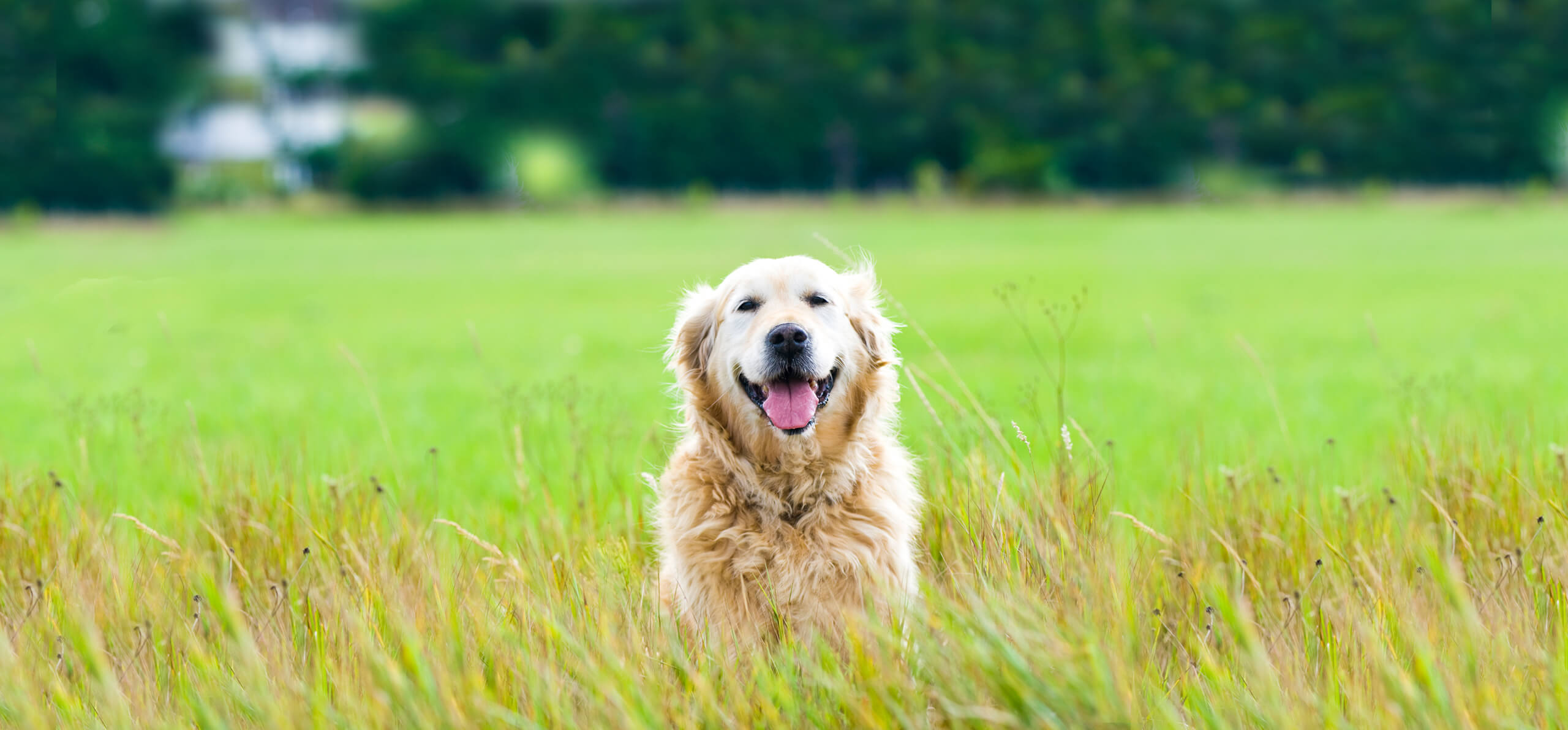You’ll know your dog is a senior when:
Snow on the chin
You’ll notice your dog has sprouted some white hairs. Gray whiskers are common around their muzzles and chins, and gray streaks may appear on their body fur. Without a “Just For Dogs” hair-color solution, you’ll just have to embrace it.
Too full to eat
Older dogs often have smaller appetites and they may even need coaxing to eat. Always check with your veterinarian to be sure your canine’s decreased appetite and any accompanying weight loss aren’t from a health condition, other than simply aging.
No thanks; I’ll lie here instead
If your dog would rather stay put than go for a walk it could be because his joints hurt. Stiff joints and osteoarthritis are common in older dogs because the cartilage that protects their joint surfaces wears down over time, just like ours.
Keep in mind:
• Weigh-in: Is your dog overweight? Big canines carry bigger loads on their joints and more weight causes more pressure. Large breeds can also be genetically pre-disposed to bone and joint conditions like hip dysplasia.
• See the veterinarian regularly to spot early signs of joint disease. If your best pal is stiff in the morning, loathe to climb stairs or has a limp, bring him to the veterinarian. Your veterinarian may recommend therapeutic dog food that’s formulated specifically to improve movement and joint health.
• Move it, move it. “If I rest, I rust.” Same goes for canines. Movement doesn’t just help your dog stay in shape, it helps mentally stimulate him, too. Ask your veterinarian for an exercise regimen that’s safe for your senior. He or she may tell you to truncate walks and shorten playtimes, depending on your dog’s overall health. Your vet may also recommend exercises that are less stressful on joints, like swimming.
The pound problem
More than half the dogs in the United States are clinically overweight or obese, which makes them susceptible to secondary problems (like the aforementioned joint issues, plus diabetes, cardio and respiratory disease).
Senior dogs are often less active than whippersnapper pups and have different caloric needs. Special senior diets can help provide properly balanced nutrients, with different amounts of fat and protein than standard adult dog food contains, plus contain important supplements such as glucosamine and chondroitin sulfate, which can help aging joints.
Controlling calories is also important. As with exercise recommendations, ask your veterinarian for a diet plan that’s right for your older pal.
If your dog is following a vet-approved weight loss plan and seeing poor results it could be due to a sluggish metabolism from hypothyroidism. As with humans, this condition can be diagnosed with a blood test and treated with medication.
Loose teeth
Dental disease is one of the most commonly diagnosed conditions in all sizes and breeds of dogs.
Left untreated, gum disease can lead to tooth loss, pain and bacteria in the bloodstream that can cause more serious health problems, especially if diligent oral care and dental treats weren’t part of your dog’s puppyhood. Your veterinarian will need to perform a professional dental cleaning to remove the tartar build up.
Prone to cancer
Unfortunately, our dogs get cancer too. Certain breeds like Golden Retrievers are genetically wired to be more susceptible to bone cancer than other canines. If your guy or girl shows signs of chronic fatigue, weight loss, limping or coughing, be sure to see your veterinarian. Like us, early diagnosis and treatment can prove highly successful.
Learn more about the signs of pet cancer and how you can help.

